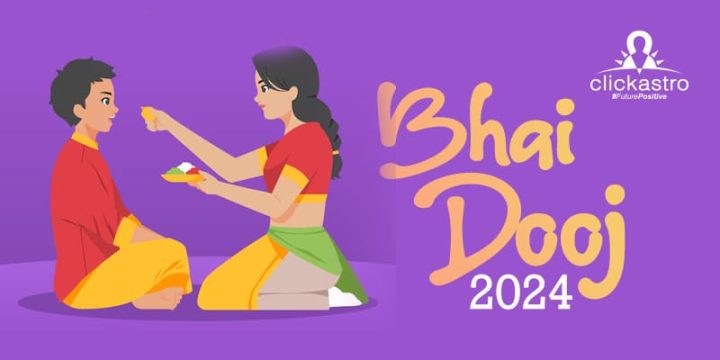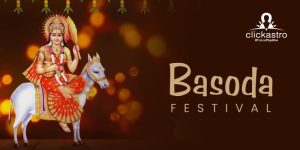Everything you need to know about Bhai Dooj 2024
Diwali/Deepavali, also known as the Festival of Lights, usually begins with Dhanteras and ends with Bhai Dooj, the fifth day of Diwali. Bhai Dooj is observed on the second lunar day of the
Shukla Paksha. Bhai Dooj is a festival commemorating a sister’s love for her brother. On this day, the sister prays for her brother’s long life, treats him to lavish meals, and both exchange gifts.
The mythology behind Bhai Dooj
The Hindu mythological scriptures describe that after defeating the demon Narakasura, Lord Krishna paid a visit to his sister Subhadra on this day. Subhadra greeted Krishna warmly by applying tilak to his brow and garlands around his neck. She gave him sweets and then prayed for her brother’s long life.
Story of Yama and Yami
Another legend described in Hindu mythology states that Lord Yama paid a long-awaited visit to his sister, Yami, on this day. Yami was overjoyed and lavished him with Aarti and garlands, as well as a vermilion tilak on his forehead. She then treated him to a lavish feast prepared by Yami herself out of love for her brother. Yama spent the entire day with his sister in happiness and declared that if a brother visited his sister on this day, he would be blessed with long life, happiness, and prosperity.
When is Bhai Dooj 2024?
In 2024, Bhai Dooj will be observed on Sunday, 3rd November.
Auspicious Muhurta Timings:
- Bhai Dooj Date: 3 November 2024
- Bhai Dooj Aparahna Timing: 1:17 PM to 3:38 PM on Sunday, November 3
- Dwitiya Tithi Commences: November 02, 08:22 PM
- Dwitiya Tithi Concludes: November 03, 10:05 PM
Detailed 60-page FREE Kundli. Get it Now!
Bhai Dhooj Rituals and Pooja Vidhi
Bhai Dhooj is similar to
Raksha Bandhan, which also represents the sister’s love for her brother. Sisters (if married) visit their brothers at their maternal home on Raksha Bandhan and tie a Raksha (rakhi) as a symbol of protection. On Bhai Dooj, brothers are invited to their sisters’ homes and are warmly welcomed with aarti, a red tilak (tika), and flowers, as well as scrumptious and extravagant meals prepared by the sisters. The tilak represents the sister’s sincere wishes for her brother’s long life and prosperity. They also exchange gifts and spend the day celebrating happiness and love.
The Bhai Dhooj pooja thali is exquisitely decorated with vermillion, sandal, fruits, flowers, sweets, and betel nut. This thali is traditionally prepared on the eve of Bhai Dhooj.
Before the Tilak ceremony, a square made of rice is drawn out.
The puja must be performed precisely at the Muhurat time.
The brother is then seated within the rice square at the auspicious Muhurat, and his sister applies tilak.
Before performing an Aarti, the sister gives her brother fruits, betel nuts, crystallised sugar, betel leaf, and black grammes.
Following Tilak and Aarti, the brother gives his sister gifts and promises to protect her for the rest of her life.
Bhai Dooj celebration in different parts of India
Bhai Dooj is also known as Bhaiyya Dooj in the north, Bhai Phonta in Bengal and Assam, and Bhau Beej or Bhav Bij in Maharashtra, Gujarat, Goa, and Karnataka. It is also observed in some parts of Tamil Nadu and represents the closeness of the families of sisters and brothers. Bhagini means sister, and Hasta Bhojanam means to partake in sister’s meals. In the south, this festival is known as Yama Dwitiya, Bhatri Ditiya, or Bhagini Hastha Bhojanamu in Andhra Pradesh and Telangana.
In Maharashtra, on this auspicious day of Bhau Beej, women without brothers worship the Moon God by applying Mehendi to the hands of young girls as a tradition. Hindus worship Moon God, also known as Chanda Mama (Chanda means moon and Mama means mother’s brother). Women and girls who cannot visit their brothers on this day pray for their brothers’ long life by worshipping the Moon God and performing aarti to the moon. Historically, this was also the day when brothers would pay visits to their sisters or invite the sisters’ families to celebrate the abundant harvest and strengthen the brother-sister bond.
Bhai Dooj is known as Bhai Phonta in Bengal and Assam, where every ceremony begins with the sound of the conch in the morning. The ceremony is hosted at the sister’s home by her brother and the rest of the family. The brother sits on a small cotton mattress while his sister applies tilak or phota (phonta) made of Chandan, kajal, and Dahi while praying for his well-being. There are also specific applications for the phonta. If the sister is older than the brother, she applies the phonta with her left little finger; the younger sister applies it with her right.
This day is also known as Vishwakarma puja day by the artisan community, as Lord Vishwakarma is the presiding deity for architecture, craft trades, building, manufacturing, and textile work. On this day, looms, tools, machines, and work areas are cleaned, and artisans pray for prosperity and a steady flow of sources of livelihood.
Bhai Dooj is also known as Bhai Tika in Nepal as part of the Tihar (Diwali) festival. The sisters use a tika of seven colours, each with a symbolic meaning. They perform puja by circling their brothers and pouring oil on the floor and on their brothers’ hair as a sign of good luck and purification. Shagun, sweets, and a sacred thread are presented to the brothers. In exchange, the brothers place a tika of seven colours on their sisters’ foreheads and present them with gifts.
Significance of Bhai Dooj
The Bhai Dooj festival commemorates not only the brother-sister bond, but also the last day of Deepavali. This also facilitates family, relatives, and friends to gather and celebrate the occasion with pomp and gaiety. The joy is shared by all, and the brothers invite their sisters and their families to visit them for Raksha Bandhan, which is also a day of brother-sister bonding. Deepavali, the harvest festival, arrives at the end of the harvest season, heralding prosperity and wealth.
Brothers share their sisters’ and families’ prosperity and bounty by showering them with gifts and blessings. The sisters, on the other hand, are overjoyed to see their brothers and shower them with love and blessings through puja as well as delicious savouries and sweets prepared with great care.
Previously, when girls left for their husband’s house after marriage, it was customary for the girl’s parents not to visit her at her in-laws’ home. On Raksha Bandhan, the daughter returns to her marital home to ensure the safety of her family and brother during the crisis. She may also pay them a visit during their pregnancy in preparation for the baby’s birth. Her brother, on the other hand, would pay a visit to her marital home after harvest to share the bounty with his sister and her family on Bhaiyya Dooj.
Both the Bhai Dooj and Raksha Bandhan festivals commemorate the deep and everlasting brother-sister bond, as well as their love and blessings for one another. It also means that they will be each other’s pillars during difficult times, protecting them from all evils with love and deep bonding.









